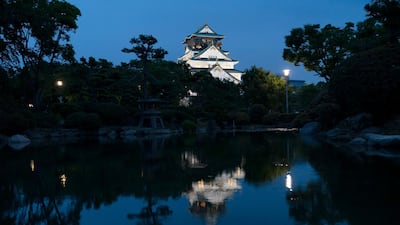As Saudi Arabia looks forward to the Osaka summit in Japan this weekend, the Kingdom is already preparing to host the next chapter of the G20 next year. Since its foundation 20 years ago, the G20 – or Group of 20 – has become an important platform for exchanging views on pressing international economic issues to tackle the current challenges facing the world. Its themes of global economics, trade and investment, innovation, the environment and energy, women's empowerment, development and employment come at a time when digitalisation and technological innovation are transforming the economic and social landscape. As the only Arab country in the G20, and as it prepares to host world leaders for its first summit in November next year, Saudi Arabia is at the cusp of some of those transformations.
The country was recently ranked among the top 10 most powerful countries in the world, according to US News and World Report rankings, which assesses countries based on five categories; military and international alliance, political and economic influence, and leadership. Saudi Arabia is not only a rising power in the international arena but a giant in the Middle East. The world's most powerful countries are largely responsible for shaping the global economy. Their foreign policies and support matter and have reverberations around the world.
The Kingdom is fully committed to the G20’s objectives and to the stability and prosperity of the international economic system. Through its presidency, the country looks forward to further strengthening its ties with other G20 countries and to reaching an international consensus on the summit’s agenda over its two-day meeting of leaders whose countries represent two-thirds of the world’s population, 85 per cent of global economy and 75 per cent of international trade.
The Kingdom is among the wealthiest countries in the world and accounts for the biggest land mass and population in the Arabian peninsula. It has special status within the Muslim world as the home of Makkah and takes a leadership role in protecting the vital interests of Muslims around the world in the spirit of promoting international peace and harmony. With the biggest economy in the Middle East, it is a leading oil producer and a longstanding member of the G20.
Among the G20, Saudi Arabia ranks third in terms of foreign reserves, with $507.2 billion, after China and Japan. Its reserves account for 6.4 per cent of the G20's total reserves. Saudi Arabia has an oil-based economy, with strong government controls over major economic activities and oil capabilities which make up 16 per cent of the world's petroleum reserves, making it not only one of the wealthiest nations in the Middle East but a leader in Opec. The organisation was formed to unify and co-ordinate members' petroleum policies, ensure the stability of oil markets and secure an efficient, economical and regular supply of petroleum to customers.
Saudi Arabia also plays a major role in combating terrorism and is an active and critical member in the global coalition to defeat ISIS. The Kingdom systematically implements UN Security Council sanctions on groups and individuals linked to the extremist group and Al Qaeda, and has expanded existing counterterrorism programmes and projects to combat violent extremism and support the international community to that end.
As one of the most powerful and largest Arab countries, it has excellent and strong relations with superpowers around the world. The US views Saudi Arabia as an ally and has highlighted their joint strategic vision, including many new initiatives in investment, trade, security, defence as well as educational and cultural ties.
With France, the Kingdom's relationship is based on common strategic interests and preserving security in a troubled region, as well as sharing a convergence of views on regional crises. Beijing and Riyadh have forged a working relationship that has been useful to both sides, especially in energy development. China has been the largest consumer of Saudi crude oil for a decade. The state-owned Saudi Basic Industries Corp has found a welcome market in China for its petrochemical products. Saudi Arabia is China’s biggest trading partner in the Arab world and both countries have pledged to expand and deepen their commercial and industrial ties.
In its relations with the UK, Saudi remains one of its closest allies and is among its most reliable economic and security partners in the Middle East. The governments of both nations have been united in their efforts to promote stability and prosperity through their mutually beneficial relationship and in strengthening their political, economic and security ties. Russia and Saudi Arabia's partnership is a progressive one, with state-owned Saudi Aramco reportedly making an investment in a Russian Arctic liquefied natural gas project and the Russian Direct Investment Fund expected to invest in Saudi Aramco's IPO. This is not just a relationship built on energy; it is more of a strategic political relationship that began as energy reformation.
Not only does Saudi Arabia have strong international alliances but it is also a founding member of several multinational organisations, with a meaningful purpose and positive impact on other countries and Muslims worldwide. Saudi Arabia has extended $14.4 billion in humanitarian and developmental assistance to more than 100 countries in one year and ranks among the world’s top donor countries, providing aid and assistance globally. Its hosting of the G20 next year will be a culmination of its rising stature on the world stage and confirmation of its political and financial might.
Khaled Menzlawiy is the deputy permanent representative of the Saudi mission to the UN in New York

